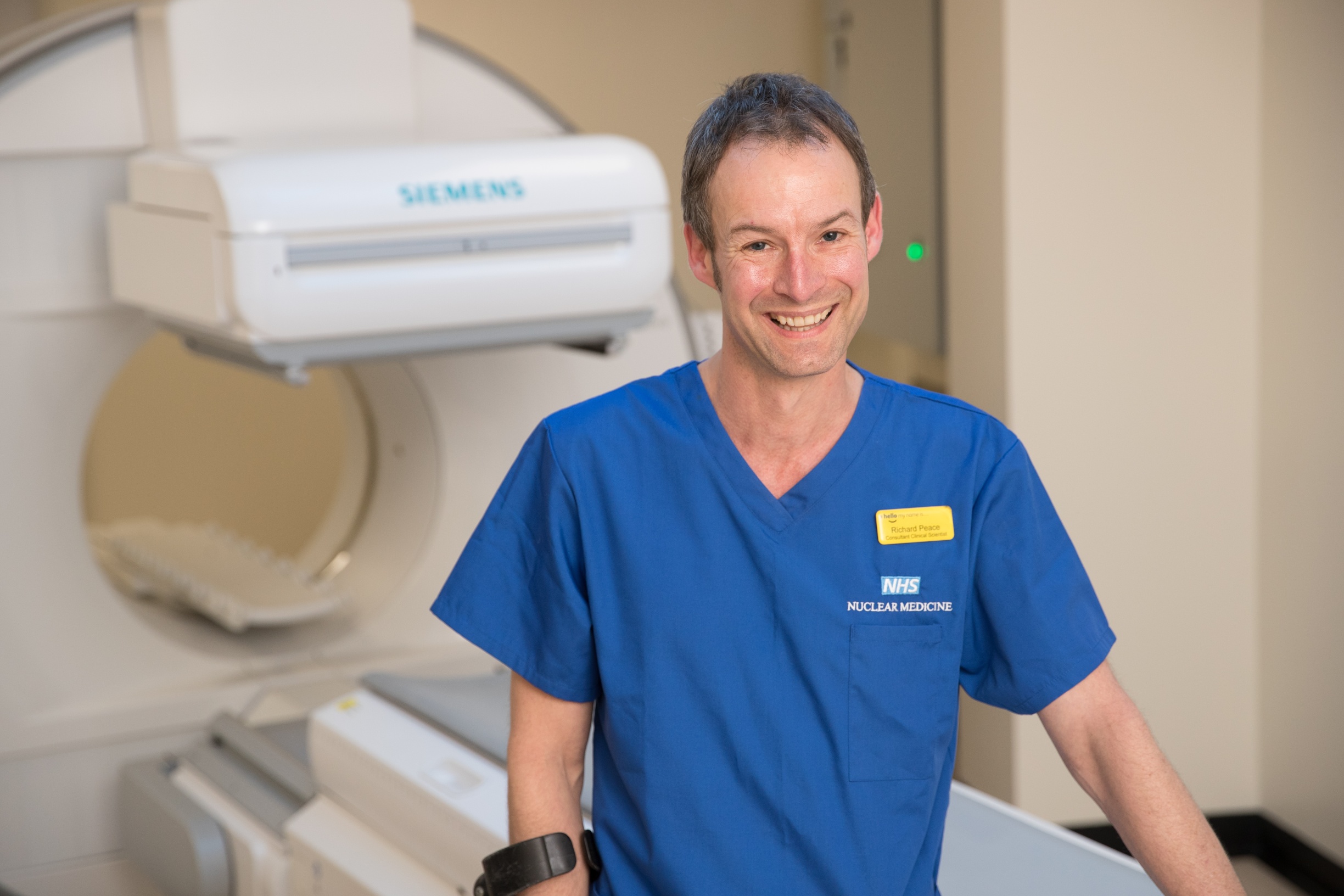Case studies
Richard | Deputy Head of Nuclear Medicine
Nuclear Medicine Trust-wide
'I love my job because I can significantly improve the healthcare of a broad range of patients'
My career has followed a typical course for a Clinical Scientist, starting with an honours degree in physics, followed by an MSc, PhD and structured professional training.
I can’t quite believe I have now been employed at the Newcastle Hospitals for 20 years as a Nuclear Medicine Physicist!
Nuclear Medicine is the use of radioactive substances for treating and diagnosing patients. Often this is for cancer, but also for many other medical conditions - I love my job because I can significantly improve the healthcare of a broad range of patients.
As a physicist and manager my role is to:
- Develop scientific aspects of the Nuclear Medicine Department to ensure it is safe, effective, patient friendly and the best that we can be
- Help recruit and train current and future Clinical Scientists, Technologists, Specialist Nurses and Radiologists
- Make the case for and bring into clinical practice big new scanners or radioactive tracers and therapies
- Report patient images
- Be an expert at a weekly regional multidisciplinary meeting for children’s kidneys
- Undertake research and audit
- Ensure the Department complies with all radiation protection legislation
Any future aspirations?
As Deputy Head of Nuclear Medicine, I would love to be Head of Department one day!
What do you love about your job?
I love leading multidisciplinary teams to bring in a new service. A specific responsibility that I have enjoyed was for localisation of breast tumours with radioactive seeds as an alternative to wires. This was the first in the UK.
Many patients with impalpable breast tumours had their tumour localised by a wire with the tip in the tumour. Surgery can be challenging resulting in repeat surgery.
There is time pressure on Radiology staff inserting the wire, often on the morning of surgery, and additional anxiety for the patient. Surgery is much more successful with seeds and easier for the patient and Radiology staff to get the tumour localised.
What has been your proudest moment so far?
My proudest moment of my career was becoming Deputy Head of Nuclear Medicine. This has allowed greater insight and influence into the way that we shape and constantly try to improve what we do.
Any tips for finding a job that you love?
Try a few! The first may not be the best, but it will open opportunities for something else.
Tell us about any unusual aspects of the job
I have been working from home for 2 years! This is on medical grounds.
What are your usual working hours?
8.30am to 5.15pm Monday to Friday.
What training is needed for your job?
BSc in physics, MSc in Medical Physics, PhD or equivalent, higher structured training for a few years.
Did you get any development support from the Trust?
Yes, there are loads of training opportunities from the Trust and others provided at a regional and national level.
Why should someone come and work in your department?
Because we are a unique and fascinating specialism imaging and treating different parts of the body with radioactivity within a multidisciplinary team that will nurture your career.
See what vacancies are available

